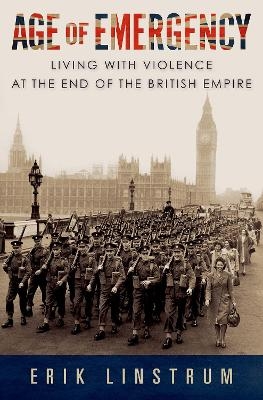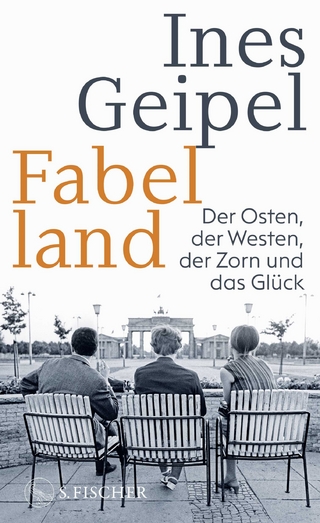
Age of Emergency
Living with Violence at the End of the British Empire
Seiten
2023
Oxford University Press Inc (Verlag)
978-0-19-757203-0 (ISBN)
Oxford University Press Inc (Verlag)
978-0-19-757203-0 (ISBN)
Age of Emergency examines how metropolitan Britons understood colonial violence in the two decades after V-E Day when "small wars" raged on the frontiers of empire in Malaya, Kenya, and Cyprus.
An eye-opening account of how violence was experienced not just on the frontlines of colonial terror but at home in imperial Britain.
When uprisings against colonial rule broke out across the world after 1945, Britain responded with overwhelming and brutal force. Although this period has conventionally been dubbed "postwar," it was punctuated by a succession of hard-fought, long-running conflicts that were geographically diffuse, morally ambiguous, and impervious to neat endings or declarations of victory. Ruthless counterinsurgencies in Malaya, Kenya, and Cyprus rippled through British society, molding a home front defined not by the mass mobilization of resources, but by sentiments of uneasiness and the justifications they generated.
Age of Emergency traces facts and feelings about violence as torture, summary executions, collective punishments, and other ruthless methods were employed in "states of emergency." It examines how Britons at home learned to live with colonial warfare by examining activist campaigns, soldiers' letters, missionary networks, newspaper stories, television dramas, sermons, novels, and plays. As knowledge of brutality spread, so did the tactics of accommodation aimed at undermining it. Some contemporaries cast doubt on facts about violence. Others stressed the unanticipated consequences of intervening to stop it. Still others aestheticized violence by celebrating visions of racial struggle or dramatizing the grim fatalism of dirty wars. Through their voices, Erik Linstrum narrates what violence looked, heard, and felt like as an empire ended, a history with unsettling echoes in our own time.
Vividly analyzing how far-off atrocities became domestic problems, Age of Emergency shows that the compromising entanglements of war extended far beyond the conflict zones of empire.
An eye-opening account of how violence was experienced not just on the frontlines of colonial terror but at home in imperial Britain.
When uprisings against colonial rule broke out across the world after 1945, Britain responded with overwhelming and brutal force. Although this period has conventionally been dubbed "postwar," it was punctuated by a succession of hard-fought, long-running conflicts that were geographically diffuse, morally ambiguous, and impervious to neat endings or declarations of victory. Ruthless counterinsurgencies in Malaya, Kenya, and Cyprus rippled through British society, molding a home front defined not by the mass mobilization of resources, but by sentiments of uneasiness and the justifications they generated.
Age of Emergency traces facts and feelings about violence as torture, summary executions, collective punishments, and other ruthless methods were employed in "states of emergency." It examines how Britons at home learned to live with colonial warfare by examining activist campaigns, soldiers' letters, missionary networks, newspaper stories, television dramas, sermons, novels, and plays. As knowledge of brutality spread, so did the tactics of accommodation aimed at undermining it. Some contemporaries cast doubt on facts about violence. Others stressed the unanticipated consequences of intervening to stop it. Still others aestheticized violence by celebrating visions of racial struggle or dramatizing the grim fatalism of dirty wars. Through their voices, Erik Linstrum narrates what violence looked, heard, and felt like as an empire ended, a history with unsettling echoes in our own time.
Vividly analyzing how far-off atrocities became domestic problems, Age of Emergency shows that the compromising entanglements of war extended far beyond the conflict zones of empire.
Erik Linstrum is Associate Professor of History at the University of Virginia. He is the author of Ruling Minds: Psychology in the British Empire, which won the George Louis Beer Prize of the American Historical Association.
Acknowledgments
Introduction: The Wars Were Like a Mist
Part I: Knowing about Violence
Chapter 1: Out of Apathy
Chapter 2: War Stories
Part II: Justifying Violence
Chapter 3: Violence without Limits
Chapter 4: The Claims of Conscience
Part III: Living with Violence
Chapter 5: Covering Counterinsurgency
Chapter 6: Performing Counterinsurgency
Epilogue: The Afterlives of Colonial War
Notes
Bibliography
Index
| Erscheinungsdatum | 18.03.2023 |
|---|---|
| Zusatzinfo | 26 black and white halftones |
| Verlagsort | New York |
| Sprache | englisch |
| Maße | 164 x 236 mm |
| Gewicht | 621 g |
| Themenwelt | Geschichte ► Allgemeine Geschichte ► Zeitgeschichte |
| Geisteswissenschaften ► Geschichte ► Regional- / Ländergeschichte | |
| Geschichte ► Teilgebiete der Geschichte ► Militärgeschichte | |
| ISBN-10 | 0-19-757203-0 / 0197572030 |
| ISBN-13 | 978-0-19-757203-0 / 9780197572030 |
| Zustand | Neuware |
| Haben Sie eine Frage zum Produkt? |
Mehr entdecken
aus dem Bereich
aus dem Bereich
Gewalt, Umwelt, Identität, Methode
Buch | Softcover (2024)
Spector Books OHG (Verlag)
CHF 49,95
der Osten, der Westen, der Zorn und das Glück
Buch | Hardcover (2024)
S. Fischer (Verlag)
CHF 36,40


